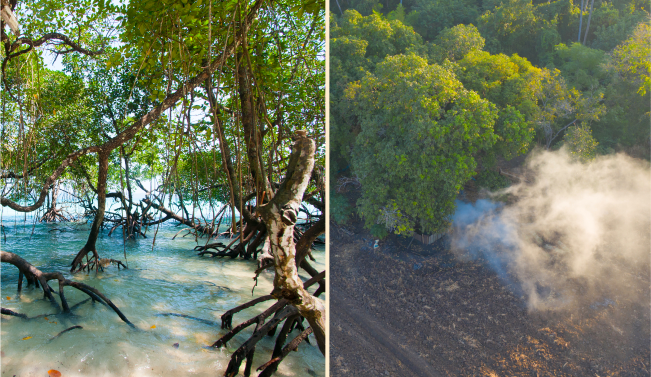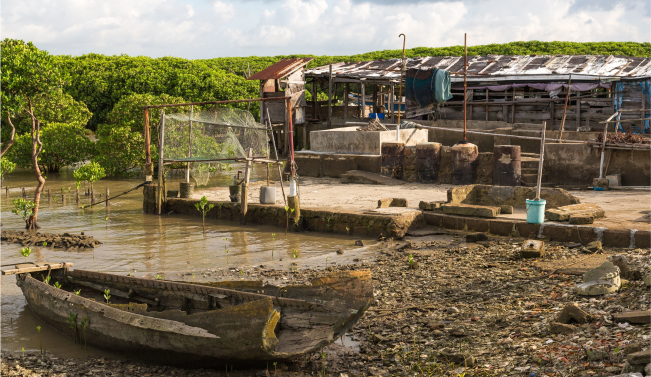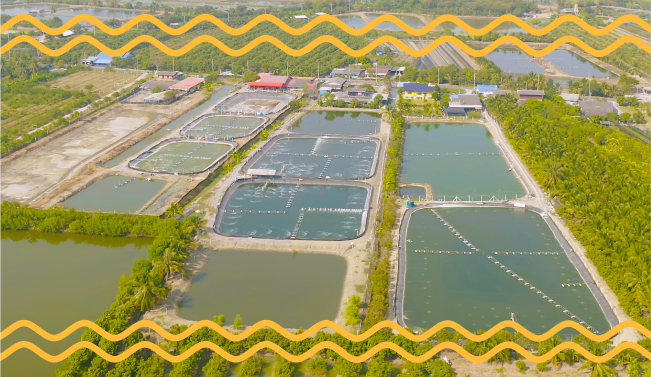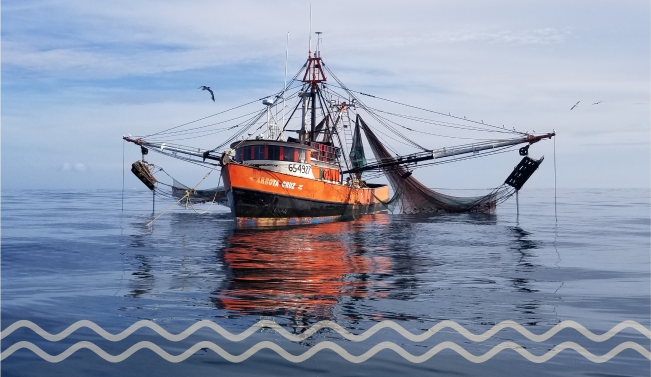The Dark Side of Commercial Shrimping Practices
Texas Gold Shrimp on 15th Jun 2024
While shrimp is undoubtedly a culinary delight, there's a less savory side to the industry that deserves your attention. Behind the scenes of some commercial shrimp operations lie practices that raise serious concerns about environmental sustainability, ethical sourcing, and even food safety. Let's shed some light on the darker aspects of the shrimp industry and why wild-caught shrimp from Texas Gold Shrimp is the better choice.

The Environmental Toll of Mass-Produced Shrimp
The demand for cheap, readily available shrimp has fueled the rise of mass-produced shrimp farming. While this may seem like a convenient solution to satisfy our seafood cravings, it comes at a steep environmental cost. Let’s dive deeper into the specific ways in which mass shrimp production wreaks havoc on delicate ecosystems:
Shrimp Farm Pollution: A Toxic Brew
Shrimp farms are notorious for their water pollution. The discharge of untreated wastewater from these farms into surrounding waterways creates a toxic mix of pollutants, including:
- Antibiotics: Used to prevent and treat bacterial infections in shrimp, antibiotics can accumulate in the environment and contribute to the growing problem of antibiotic resistance, making it harder to treat infections in humans and animals.
- Pesticides: Employed to control parasites and pests in shrimp ponds, pesticides can harm other aquatic life and potentially contaminate seafood.
- Fertilizers: Fertilizers promote algae growth, which is food for shrimp. Excess fertilizers can lead to algal blooms that deplete oxygen levels in the water, suffocating fish and other marine life.
- Organic Waste: Uneaten food, shrimp excrement, and other organic waste from shrimp farms can overload waterways with nutrients, leading to eutrophication, which triggers excessive algae growth and further depletes oxygen levels.
Nutrient Deficiency: Missing Out on Ocean Goodness
Shrimp in farms don’t get to feed on plankton and the diverse nutrients they would naturally find in the ocean. Shrimp farms are notorious for using cheap feeds because they cannot replicate the shrimp's natural diet. And the shrimp's diet is one of the main factors that determines the flavor of shrimp. Farm-raised shrimp have little to no flavor because they are fed these cheap feeds, which are nothing like the plankton and other natural items they would consume in the wild. This lack of a natural diet not only affects the flavor but also potentially impacts the nutritional quality of the shrimp, leading to a less healthy product.

The Trouble with Unregulated Foreign Shrimping
The shrimp you find on your plate likely has a long and complex journey behind it. The vast majority of shrimp consumed in the United States is imported from countries with varying levels of environmental and labor regulations. In many cases, these regulations are lax or poorly enforced, creating a breeding ground for a range of ethical and ecological issues.
Human Rights Abuses: A Harsh Reality for Shrimp Workers
In some countries, shrimping is synonymous with labor exploitation. Reports of forced labor, where workers are trapped in debt bondage or subjected to physical abuse, are not uncommon. Child labor is also prevalent in the shrimping industry, with young children forced to work long hours in hazardous conditions. By purchasing shrimp from these sources, consumers may unwittingly be contributing to a cycle of exploitation and human suffering.

Consumer Choice: A Powerful Tool for Change
The good news is that consumers have the power to influence the shrimp industry through their purchasing decisions. By choosing to buy shrimp from reputable sources that prioritize sustainability and ethical practices, you can send a message to the market that these values matter.
Knowing the Origin of Your Shrimp
Instead of relying on certifications, it’s essential to know where your shrimp comes from. Understanding the origin of your shrimp can help you ensure that it was caught or farmed sustainably and ethically.
Supporting Wild-Caught Shrimp
Wild-caught shrimp, like those from Texas Gold Shrimp, offer a more sustainable and ethical alternative to farm-raised shrimp. Here’s why:
- Natural Diet: Wild-caught shrimp feed on a natural diet in the ocean, resulting in superior flavor and nutritional quality.
- Sustainable Practices: At Texas Gold Shrimp, we adhere to sustainable fishing practices that minimize environmental impact and ensure the long-term health of shrimp populations. The National Oceanic and Atmospheric Administration (NOAA) regularly monitors and has classified Gulf shrimp as not being overfished, affirming the sustainability of our practices.
- Full Supply Chain Control: We own and manage every step of the supply chain, from when the shrimp are caught to when they arrive on your plate. This control ensures that our shrimp are handled with the utmost care and transparency at every stage.
- Ethical Labor Practices: We are committed to fair labor practices and ensure that all workers in our supply chain are treated ethically and compensated fairly.

Making Informed Choices for a Better Future
So, what can you do as a consumer to ensure your shrimp choices are ethical and sustainable? Here are a few tips:
- Choose Domestic, Wild-Caught Shrimp: Look for shrimp that's been sustainably caught in U.S. waters, where environmental regulations are generally more stringent.
- Ask Questions: Don’t be afraid to inquire about the origin and production methods of the shrimp you’re buying. A reputable seller will be transparent about their sourcing and practices.
- Support Sustainable Brands: Choose companies like Texas Gold Shrimp prioritizing sustainable and ethical practices. We're committed to transparency and traceability, ensuring you know exactly where your shrimp comes from and how it was produced.
By making informed choices and supporting responsible businesses, you can help to create a more sustainable and ethical shrimp industry, ensuring that this delicious seafood can be enjoyed for generations to come.

